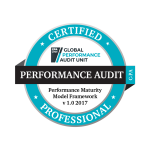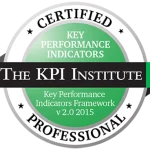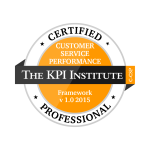Introduction
The benchmarking methodological uniqueness is represented by the identification of those processes that lead to superior performance, followed by the analysis of the best practices behind that success. Benchmarking offers the opportunity to compare an organization’s performance against industry competitors, noting strengths, weaknesses, and different ways of executing projects.
As successful businesses constantly focus on improving the quality of their processes, products and services, benchmarking comes as one of the best approaches in achieving innovative ideas and superior procedures within the organization, through finding and implementing best practices.
In order to ensure a successful benchmarking study, professionals should not only become familiar with how to drive a good selection of the variables to be measured, but also how to determine the comparison compatibility of the measured processes and allocate the resources accordingly.
5 Benefits
- Improve your organizational processes by applying benchmarking best practices;
- Link benchmarked data to your organizational strategy and performance objectives;
- Set up and apply a benchmarking plan in your own organization, in order to increase competitiveness;
- Acquire strong competitive insights from benchmarking specialists’ experience and best practices examples to suit your organization’s reality;
- Gain professional recognition of your personal benchmarking knowledge and capabilities by obtaining the certification granted by The KPI Institute.
Learning objectives
- Associate benchmarking objectives with the organizational strategy;
- Design a benchmarking plan for your organization;
- Understand the fundamentals of data collection and analysis;
- Assess performance gaps according to benchmarked data;
- Select the relevant benchmarks and establish a monitoring process.
Evaluation
The certification process is finalized when you complete all stages of the learning experience. You will receive a:
- Certificate of Completion (soft copy): after completing pre-course activities and passing the Certification Exam;
- Certificate of Attendance (hard copy): after participating at the three days of on-site training course;
- Certified Benchmarking Professional diploma (hard copy): after you have successfully completed all of the three stages of the learning experience.
1 – Introduction to benchmarking
Benchmarking overview
- What is Benchmarking?
- Definitions and terminology;
- The advantages of Benchmarking
- Governance;
- Six Sigma and process improvement
Types of Benchmarking
- Formal vs Informal Benchmarking
- Performance Benchmarking
- Process Benchmarking
- Strategic Benchmarking
- Benchmarking approaches
Benchmarking Methodologies
- Benchmarking stages
- APQC methodology
- Camp R.C. model
- TRADE methodology
- Motorola model
- Kaiser associates
- AT&T
- IBM methodology
- Xerox methodology
- TKI’s methodology
- Choosing the suitable methodology
Benchmarking project planning
- Scoping
- Cost-benefit analysis
- Benchmarking team
- Benchmarking partners identification
- Process documentation
- Data collection plan
2 – Data collection & analysis
KPIs and Performance Benchmarking
- Aligning benchmarking to strategy
- Value added by KPIs
Data collection
- Data validation with quality standards
- International data reporting standards
- Data collection process
- Data collection methods and tools
- Data adjustment
Data analysis
- Data analysis techniques
- Identification and analysis of performance gaps
3 – Value generation
Insight Generation
- Formulate initiatives to close performance gaps
- Initiatives formulation techniques
- Develop a portfolio of initiatives
Improvement process
- Implementation road map
- Factors influencing the implementation
- Change management
- Monitoring and reporting tools
Ethics in Benchmarking
- Legal issues in Benchmarking
- Ethical issues in Benchmarking
Review and Certification Exam
- Course review
- Certification Exam.





